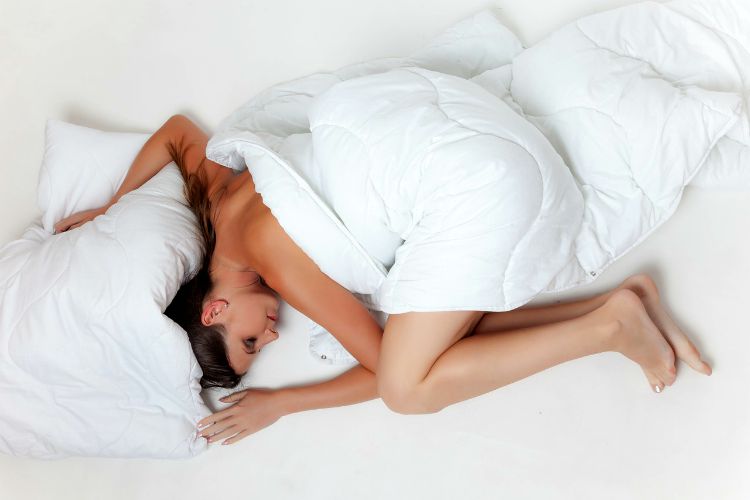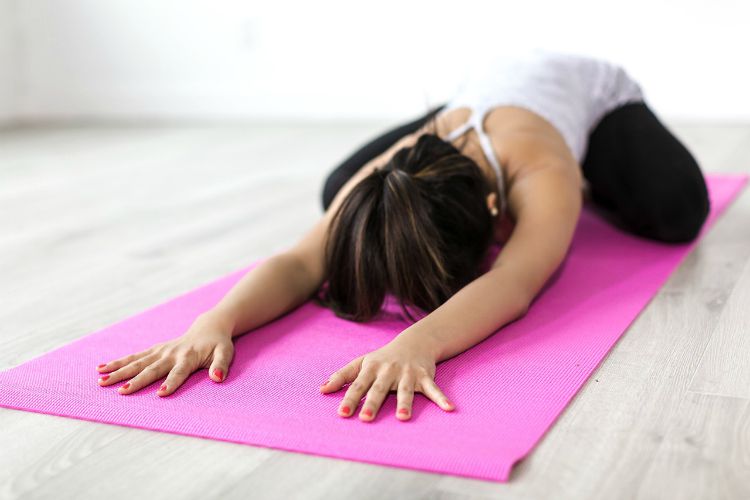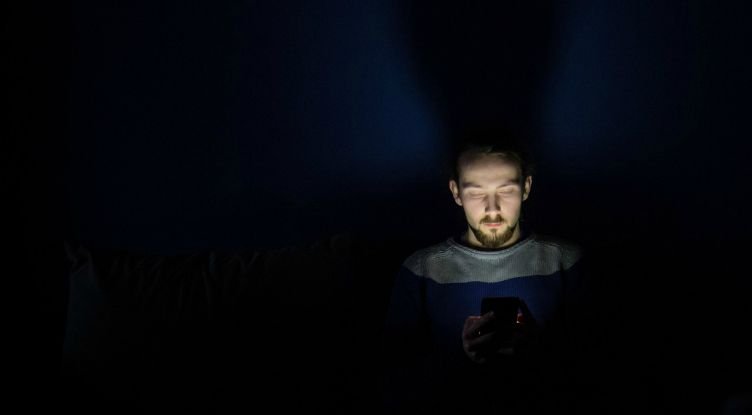
We’ve all had sleepless nights. I know I have, but when the sleepless nights are more frequent than actual rested sleep, it becomes a problem. I know from experience that if I have more than a couple of days of little to no sleep in a row, I become cranky, unfocused and foggy in my thinking. As a woman, my sleepless nights have been attributed to hormonal changes like peri-menopause and menstrual symptoms, but it’s not the same for everyone.
So, what can we do to find relief when in the midst of a lengthy insomnia cycle?
Firstly, consult your doctor to make sure that any drugs you are on are not causing your insomnia. You may need a change in your medication.
Secondly, look at your life and see if anything in your lifestyle could be contributing to this, such as overworking, an overfull mind at the end of the day, taking work home with you instead of leaving it there, or generalised anxiety due to other challenges, financial, relationship or health.
Sometimes getting to grips with simply understanding ‘why?’ when it comes to sleeplessness can give us peace of mind and ease us back into a more well-rested night’s sleep, but often we can’t pinpoint what is causing it. Sometimes it is, as in my case, hormonal or health-related, but if we just can’t seem to stop the monkey mind from waking us or preventing us from falling asleep, we need some help.
Finding relief has been an ongoing effort for me. First finding out that it could be hormonal and then doing a number of things to assist with the insomnia, both for sleep, but also to aid with releasing the excess stress that would build up during the day.
So, here is my own list of what I have found to bring relief, along with additional sleep support that has helped others. Remember, everyone is different and always consult your primary healthcare professional before trying something new that may affect your current medication.
- Breakfast like a King (or Queen)
Changing my diet made a big difference to my sleepless nights. I was having hot hormonal flashes that were keeping me awake with intensive heat every night in bed. My acupuncturist recommended that I change my diet around, so that instead of eating a bowl of cereal or a high carb smoothie first thing, followed by a medium lunch and large dinner, I turned everything upside down. Now I have a high protein breakfast, rather large, a medium lunch and I only have a snack in the evening, before 6pm. Nothing after 6pm and this has helped me accidentally lose excess weight, but also has helped me sleep.
- CBD Oil For Insomnia
CBD oil, otherwise known as Cannabidiol, has been so supportive for many people when it comes to sleep and anxiety especially. Often sleeplessness can be fuelled by an anxious mind, so it makes total sense that taking something that helps calm the monkey mind and soothe the mind, body and spirit will bring great relief when it comes to insomnia. I’ve used CBD oil for anxiety, and it has helped considerably. In the midst of a panic attack CBD oil can stop it in its tracks. I have several friends who swear by CBD oil products for sleep and I could fill this page with testimonials on how it is changing their lives, so I will give you just a couple.
“Originally took it for localised pain in my ruptured knee, but I’ve since come off antidepressants because it has helped with both my depression and anxiety. It also helps me sleep so much better, and it helps me to get to sleep quicker.” Karen Constable
“My daughter uses the CBD lollies for anxiety. They work like a switch, she calms and is able to relax and get over feelings of overwhelming claustrophobia or panic attacks.” Michelle Olley
CBD oil is one of more than 120 compounds called cannabinoids, but unlike other cannabinoids it does not give the euphoric high and is not addictive. It has been supporting people for so many health conditions ranging from pain relief and mental health issues to amazing benefits for those who suffer from epileptic seizures. The key with CBD oil is making sure you do your research first. There are many retailers out there selling substandard CBD oil that does very little to help those suffering,
Check out this blog post that I contributed to for more info on How to Tell If CBD Products Are Genuine. It may help you make a more empowered decision when it comes to your health needs.
- Gentle exercise before going to bed, Yoga or Pilates
I know someone who does high aerobic exercise at the gym before bed, but to me this just completely hypes you up for a day and is not for resting. Exercise like Yoga and Pilates are more relaxing, including breathing slower and into the body. Stretching relaxes the body preparing it for a deeper sense of rest.
- Humidifier in the bedroom at night
This may not be for everyone, but if you live in a dry environment, or you have sinus issues, a small humidifier in the bedroom can make a huge difference to your ability to breathe at night. For those who may suffer from snoring or sleep apnoea, it may be of benefit also. However, don’t use this if you live in a more moist home where mould appears frequently, but it is worth considering if breathing issues cause you difficulty sleeping.
- Binaural Beats Music
Music can be incredibly soothing, but certain frequencies of sound, especially binaural, actually bring the brain into a more receptive state for sleep. If you are interested in trying this, look out for the following frequencies so you don’t go for active binaural before sleep.
- Beta (13 – 40 Hz) – Active, alert and focused.
- Alpha (8 -12 Hz) – Relaxed, calm and creative.
- Theta (4 – 8 Hz) – Drowsy, light sleep and dreams.
- Delta (less than 4 Hz) – Deep sleep.
You can find binaural beats on You Tube or buy them on sites like Amazon.
- Intimacy
Okay, this is more of a delicate subject so I won’t go into it in too much detail, but giving yourself pleasure, either solo or with a partner and bringing yourself relief can relax the body and mind so that falling asleep becomes much easier.
- Meditation
I swear by meditation for sleepless nights. If you can’t sleep – meditate. Sometimes simply practising mindfulness on the restlessness, becoming the watcher of the monkey mind can bring you eventually into a state of relaxation for sleep. Also doing meditation regularly can relax you overall, making the monkey mind less of a problem.
- Lavender essential oil (but not too much as that can do the opposite)
This can be a bit of a tricky one. First you need to make sure you don’t have any allergies to this essential oil and secondly find the right amount to be used for sleep for you personally. I used to put a few drops of essential oil on my pillow at night to help me sleep, but I discovered that sometimes I put too much on and instead of it relaxing me into sleep it energised me. So less is more when it comes to lavender essential oil. You can drop it onto your pillowcase or use a diffuser.
- Stop watching TV or using mobile phones or tablets before sleep
This is a massive problem in the world we live in.
We are inundated with technology and it can become quite addictive. I know people who sleep with their mobile phones under their pillows, not wanting to miss notifications on Facebook. Younger people seem to be much more prone to doing this.
I am someone who switches my phone off and allows no technology in my bedroom at all. So, I turn off the TV at least an hour before sleep, do not scroll social media late at night and make sure my bedroom is technology free. The reason we need to stop doing this is that studies have shown that only 2 hours of exposure to light from electronic displays like mobile phones, televisions and tablets reduces our level of melatonin by 22%. Melatonin is an important hormone that helps regulate our sleeping and waking cycle. So, if we don’t get enough melatonin it can be much more difficult to fall asleep.
- Reduce alcohol
Alcohol can really disrupt sleep. We may sleep, but it is less rested, more like being unconscious. We need rapid eye movement sleep and if alcohol knocks us out, we don’t get this, so we are more likely to wake up feeling much more tired.
- Reduce Caffeine
I love my coffee, but I also know that if I drink coffee after 3pm the likelihood of it affecting my sleep increases. This goes for caffeine drinks and also eating too much dark chocolate (which also contains caffeine).
- Try not to drink too many liquids before bed
As a mouth breather at night I get very thirsty, but even so I have had to stop drinking liquids during the night and before bed. The more liquids we drink the more our sleep is disrupted by our bladders needing the toilet.
- Get help for any sinus issues
If you have persistent sinus issues or breathing difficulties like asthma, make sure you are receiving the help you need so that it doesn’t make sleeping even harder for you.
- Make sure your room is dark
I have never been able to sleep in a light room. It boggles my brain when I see people sleeping with blinds or curtains open, because the body naturally slows down and goes into that deeply rested place by being in the dark. If you have a fear of the dark, and need light in your room at night, make sure that the light is towards the red end of the spectrum and away from the blue. Blackout curtains and blinds are a real blessing to my sleep.
- Keep your room cool (heatwave help!)
Recently we have had a massive heatwave in the UK. I think many of us were walking around like zombies. We are not accustomed to the heat. Our homes are built to keep the heat in for our wet and sometimes cooler climate and not many of us have air conditioning. So, keeping your room cool is also important. In the summer a fan helps and somebody recommended freezing a plastic bottle of water and placing the bottle in a tray in front of the fan as this becomes a makeshift air-conditioning unit, but the general tip is, just do what you can to stay cool, not cold. Heat can make us toss and turn and have a very restless sleep as the body tries to regulate our body temperature.
- Stop stimulating work before bed
If you work from home, or take your work home with you, put a limit on when you stop. Try and stop working at least 2 hours before bedtime. Your mind needs time to relax and let go of the job. If work is taking over your life to the point that you’re not sleeping, maybe it’s time to re-prioritise your life in a whole new way if you can.
- Massages and bodywork like acupuncture
A relaxing massage, reflexology treatment or other bodywork like acupuncture can help re-balance the energy (chi) in the body and be helpful to aiding sleep long-term. I have acupuncture regularly and it helps a lot.
Now over to you, what brings you relief when it comes to sleepless nights or insomnia?



